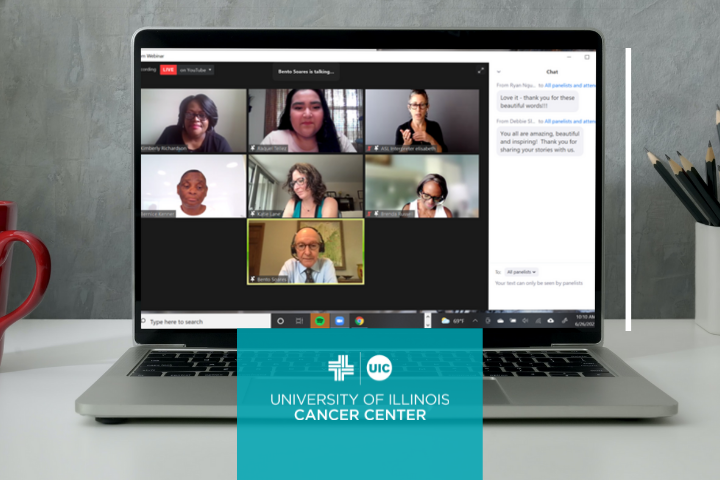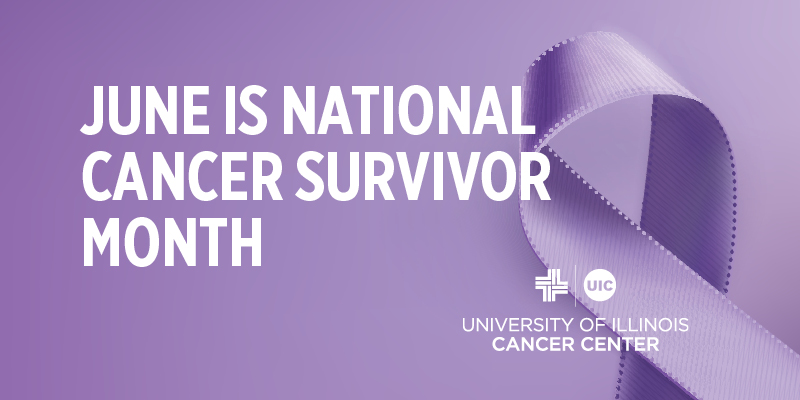
Katie Lane cooked. Raquel Tellez learned to knit. Brenda Russell texted friends uplifting messages. Resilience begins with staying active and positive while battling cancer.
Lane, Tellez and Russell, along with other cancer survivors, previvors and caregivers shared their journeys during Saturday’s survivorship event, sponsored by the University of Illinois Cancer Center, the Chicago Cancer Health Equity Commission (ChicagoCHEC), and UI Health.
June is National Cancer Survivor Month, celebrating the lives of the nearly 17 million cancer survivors in the United States. The American Cancer Society estimates the number will grow to more than 22 million by 2030.
Conversations about survivorship are a necessary component of the cancer care continuum. Karriem Watson, Cancer Center Associate Director, Community Outreach and Engagement, said it’s imperative for survivors to also discuss cancer screenings and genetic testing with family members. Watson, who has lost multiple family members to cancer, noted that the experiences of “survivors and thrivers” lead to better outcomes for all people affected by cancer.

“Communication is important,” said Dr. Pamela Ganschow, Clinical Director of the Cancer Prevention and Survivorship program at the Cancer Center. “Survivors and their health care team learn together, and it’s important for survivors to know they are not alone.”
A survivor is defined as any person with cancer, beginning at the time of diagnosis. A previvor is someone who has a strong predisposition to being diagnosed with cancer due to their family history. Dr. Deborah Manst, an oncogeneralist at the Cancer Center, identifies as a previvor.
“The BCRA1 gene runs in my family and I decided to take charge of my own health,” she said. Manst underwent risk-reducing surgeries to help prevent cancer. “These decisions were for me. [The surgeries] brought me a great deal of peace.”
Cancer Center member Dr. Keith Naylor, a gastroenterologist, emphasized that family histories provide direction for physicians and their patients, helping doctors personalize screening and prevention to match the individual’s cancer risk. There is no one size fits all approach for relatives of cancer survivors.
“It’s a brave move to understand the history of cancer in a person’s family and a brave move to undergo surgeries,” said Kimberly Richardson, a research advocate at the Cancer Center who moderated the event. Richardson is a two-time cancer survivor.
Cancer Center Director Jan Kitajewski, PhD noted that a strong, diverse community of advocates and survivors is critically important to addressing disparities in cancer prevention, treatment, and research. “Our goal is to overcome barriers and provide equitable care,” Kitajewski said.
